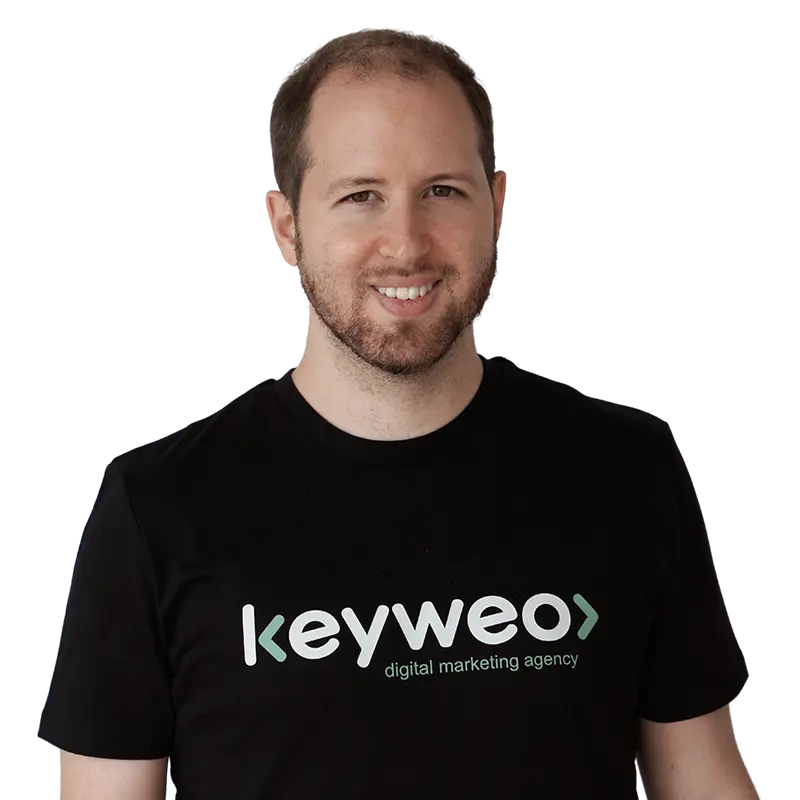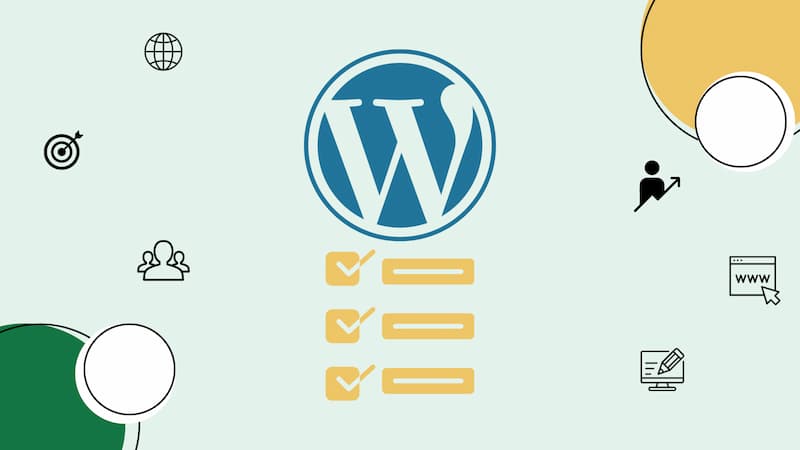In the digital marketing environment we often use terms like SEO, organic results, SEA, paid search, keyword advertising. However, if you are new to this field or operate in a totally different industry it might be difficult to understand the differences between SEO and SEA, and recognize their advantages. So, if you are wondering what technique would be better for your business, we got you covered. Keep reading this article and we will give you all the information you need to make the decision.
Let’s find out the meaning of SEO and SEA
SEO definition
SEO stands for Search Engine Optimization. It consists in optimizing a website in order to score higher in the organic results on the Search Engine Results Page (SERP). The goal of SEO is to generate traffic to a website by making it appear before other organic results in the SERP.
How does SEO work?
SEO is founded on three key strategic pillars: technical features, content and popularity.
- Technical features include all the characteristics that your website should have from a technical point of view in order to please Google, and therefore drive traffic and increase leads. Some of these elements are: optimized images, site speed and mobile friendliness.
- Content is one of the main ranking factors for Google and all search engines, so it goes without saying that it is essential to create pages which satisfy the search intent of the users. When developing our content strategy we have to have clear in mind who our target audience is, what the search intent of our users is, and then provide information which is at the same time useful and interesting for them.
- Popularity consists of all the strategies we can implement in order to drive traffic to our website and make it visible and noteworthy. An example could be earning high quality backlinks from relevant and authoritative websites. This practice helps increase the credibility and trust of your website and therefore increase your ranking as well.
A successful SEO strategy works on each of these three pillars in order to reach the first result on SERPs.
Why is valuable content important?
Firstly, if users are not satisfied with the results that appear on the search engine, they will stop using it. Needless to say, if the information they receive is not relevant to their search, it will be useless for their purpose. Google knows it very well and that is why it prizes websites which provide content that brings added value and matches the search intent of the users by ranking them higher in the organic results.
Secondly, good content can generate backlinks to your website. For Google, this can be translated as “votes” arriving to your website and it will boost your ranking.
Thirdly, it will drive more traffic and generate more views. As a consequence, it will increasing your brand awareness.
Lastly, creating valuable content in your area of expertise will contribute to define you as an expert in that area and build trust with your audience.
Why is important to have a SEO friendly website?
Building a SEO friendly website is essential because it contributes to keeping the traffic on your page for a longer time. As a result, the engagement rate will increase and it will boost your website ranking in the SERP. This is why the very first step of any SEO strategy is to make sure a website is secure and free from technical errors, crawlable for search engines and quick to load. Google recommends a page load time of under two seconds.
SEA definition
SEA is short for Search Engine Advertising. It includes all the activities of displaying advertising on search engines and it is also referred to as PPC or Pay-Per-Click. In simple terms, it consists in paying in order to have an advertising appear on the top of the Search Engine Results Page, right before the organic results. One of the main objectives of SEA is to increase traffic and sales at a good ROI (Return on Investment), which can be defined as the profit made from the advertising.
How does SEA work?
First of all, the advertiser researches and defines the keywords to use in the campaign and bids for that keyword or phrase. Then, he creates a text for the advertising, and indicates how much a click on the ad is worth to him. He can also decide the duration of the campaign and the total budget, as well as the page the user will land on when clicking the ad. Once the campaign is ready, the advertiser activates it and analyses the results obtained. If required, he can modify the campaign in order to increase the performance of the advertising.
The importance of Quality Score
In order to place an advertising, it is necessary to register with an advertising network. The most popular is Google AdWords and it regulates not only the activation of the ads but also the pricing and visibility of the campaign. Every time Google Ads has an advertising space available, it runs an auction. The winner is decided by Google by calculating a “quality score” and multiplying it by each bid. In order to assign a quality score, Google analyses the relevance of advertiser’s website and the reaction of users to the website. For example, bounce rate and conversions are some of the factors considered by Google when ranking the site. A website can rank between 1 (low relevancy) and 10 (high relevancy). As for the keywords, the price is set taking in consideration the popularity of the specific keyword. Most frequently-clicked keywords will be more expensive than less popular ones.
How do we define the price for the ads?
The billing of the advertisement varies depending on the bidding options and calculation methods:
- CPV (cost-per-view): the advertiser is charged very time a user clicks on a video’s call-to-action.
- CPA (cost-per-acquisition): the advertiser is charged a fixed amount every time a conversion is achieved.
- CPT (cost-per-thousand): the advertiser is charged for every 1000 impressions on the network.
- CPC (cost-per-click) or PPC (pay-per-click): the advertiser is charged a fixed amount every time a user clicks on the ad.
Let’s move on with the SEO and SEA differences
Long-term vs short-term strategy
SEO is often defined as a slow process because of the wide time span between the implementation of the strategy and the achievement of results. It is common to start to see results after six months or one year. However, if you create a good SEO strategy, you can benefit from it for a long time. As a matter of fact, organic results are lasting. Therefore, even though it is a slow process, in the long term it is more profitable than SEA.
SEA, on the other hand, allows you to see results immediately after your advertising has been approved. The moment your campaign is launched, it will be visible on the search engine. However, as soon as you stop your campaign, you will no longer see any result. This is the reason why, when opting for paid search, you need to keep in mind that it will be a constant investment.
Budget
If we do not take in consideration the time needed to create content, building backlinks and optimize the website, we can say that Search Engine Optimization is nearly free. It involves an initial long-term investment which significantly decreases over time.
Search Engine Advertising allows you to set a fixed budget per day. However, it requires constant investments and can be very expensive. As we mentioned above, the most popular keywords can reach very high prices. Moreover, once a campaign is paused or definitely removed, it will no longer be showed in the search engine.
Performance measurement
SEO results might be difficult to measure. That is why it is advisable to use SEO tools which can facilitate the monitoring of the position of the keywords you are using on your website and the performance. Some useful tools are: Google Search Console, Google Analytics, Ahrefs, SEMrush.
SEA performance is easier to evaluate and immediately measurable. Search engines provide useful metrics to monitor the keywords’ trends and the effectiveness of the call-to-actions in your campaigns. ROI and CPC are just two of the Key Performance Indicators which are critical to track over time in order to optimize the online ad performance.
ROI is calculated as a percentage and measures how much you spent versus how much profit you made. It allows you to quickly understand if your ads are worth the time and budget you are investing in them. A positive ROI means your advertising is generating profit. So, the higher the percentage, the greater the profits.
CPC is calculated dividing the total amount spent on the advertising by the number of clicks that advertising generated. It measures how much you are spending for a single click on your advertising. It is also strategic to track the conversions driven by the clicks on the ads.
Let’s now analyse the advantages of SEO and SEA
Advantages of SEO
- Guarantee of qualified and regular traffic to your website
- Users trust organic results more than advertising
- It does not involve recurrent costs
- Improves engagement rates
- It helps boosting credibility
- It provides competitive advantage
- It allows to create high-quality websites
Advantages of SEA
- Large outreach
- Major control on the message you are delivering
- Quickly visible results
- More specific targeting: location, language, time (time of the day and days of the week), device, audience based on interests and previous visits on websites.
- Useful insights about the keywords which convert
- It can be used as a remarketing strategy
- Easier to measure and regulate a budget than SEO
Conclusions
SEO and SEA: different aspects but a common goal
We hope we helped you to better understand the differences between SEO and SEA. However, because of the different and complementary aspects, it might be still difficult for you to decide which strategy is better to use for your business. Most of the times, the optimal strategy is to combine both. In fact, this is the best solution when we want to take advantage of the benefits of both.
How do SEO and SEA work together?
Using both SEO and SEA strategies could be beneficial for your business. If you have a new website, for example, the best option would be to start with paid search in order to create awareness and initial engagement with the audience. Then, once you reach a good position in the SERP, you can keep improving just organic results. This strategy will enhance the generation of conversions in the long term, without having to pay for every single click.
How a SEO agency can help your business?
The best and less time-consuming solution for you would be to entrust the strategy to a digital marketing agency. They will assess your website, understand your business goals and work closely to you in order to maximize your profits and exposure. Not only will you benefit from their experience and expertise, but you will also be sure your website will be constantly up to date with the algorithm updates.
Do you think you have learnt something new from this article?
In case you would like to read more about this topic, you can find some related information in the Blog section of our website. See you there!















